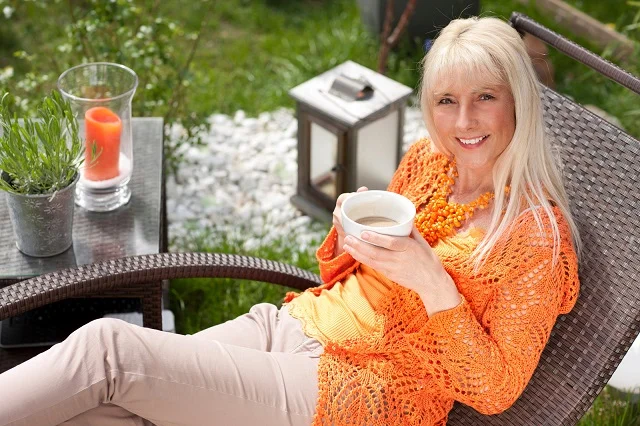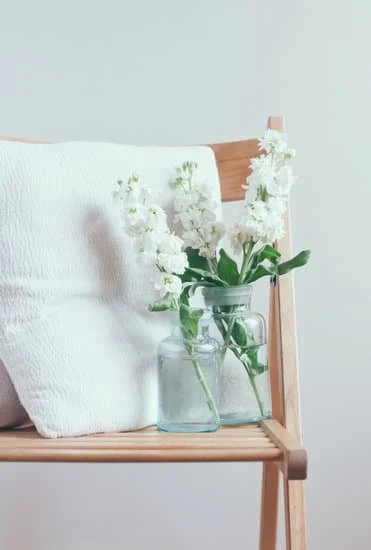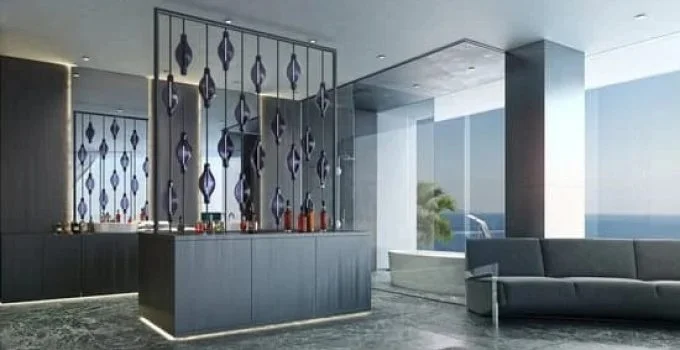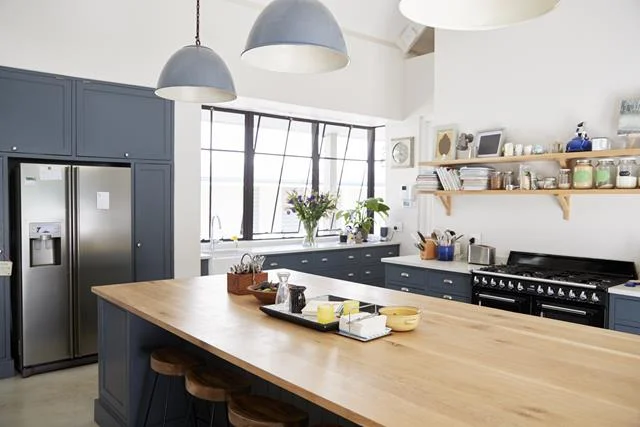What do you call a person who decorates homes? They can be referred to as interior decorators or interior designers. These professionals play a crucial role in creating aesthetically pleasing and functional living spaces that cater to the needs and preferences of their clients. Whether it’s selecting color schemes, furniture, or accessories, they have the expertise to transform any space into a beautiful and inviting environment.
The distinction between an interior decorator and an interior designer is often misunderstood. While both are involved in enhancing the appearance of a space, interior decorators primarily focus on aesthetics and decorative elements, while interior designers also consider structural aspects and building codes. Understanding this difference is essential for anyone considering a career in home decoration.
Becoming a successful home decorator requires the right qualifications, education, skills, and expertise. This article will delve into the various aspects of this profession – from the process of home decoration to job opportunities and profiles of famous home decorators. By the end of this comprehensive guide, readers will have a better understanding of the important role that these professionals play in shaping living spaces.
Interior Decorator vs Interior Designer
When it comes to the world of home decoration, people often use the terms “interior decorator” and “interior designer” interchangeably. However, there are distinct differences between the two roles that are important to understand for those considering a career in this field or seeking professional services for their homes.
An interior decorator primarily focuses on aesthetics and creating attractive and functional living spaces through the use of color, furniture, fabrics, and decorative elements. Their main goal is to enhance the look and feel of a room or an entire home while reflecting the client’s taste and lifestyle.
On the other hand, an interior designer is more involved in the structural aspects of a space, including layout, architectural details, and building codes. They often work closely with architects and contractors to ensure that the design not only looks good but also functions well within the given space.
To better illustrate these differences, here is a breakdown of the key distinctions between interior decorators and interior designers:
- An interior decorator typically focuses on furnishings, color schemes, and decorative accessories.
- They do not necessarily need formal education or licensure to practice as a decorator.
- Interior designers have a more comprehensive approach that includes spatial planning, renovation projects, and knowledge of building codes.
- They usually have a degree in interior design or architecture and may be required to obtain licensure in some states.
Understanding these distinctions can help individuals make informed decisions about which profession to pursue or which expertise to seek when looking for assistance with their home decoration needs. Both decorators and designers play valuable roles in creating visually appealing and functional living spaces.
Qualifications and Education
Formal Education and Certification
Becoming a professional home decorator typically requires formal education and certification. Many decorators pursue a degree in interior design or interior architecture from accredited institutions. This educational background provides a solid foundation in design principles, space planning, color theory, and building codes.
Upon completing their formal education, aspiring home decorators can seek certification from professional organizations such as the American Society of Interior Designers (ASID) or the Interior Design Society (IDS). Certification demonstrates a decorator’s expertise and commitment to maintaining industry standards.
Specialized Training and Work Experience
In addition to formal education, gaining specialized training and work experience is crucial for becoming a successful home decorator. Many professionals in the field participate in internships or apprenticeships with established interior design firms or experienced decorators. This hands-on experience allows them to develop practical skills and learn about the business aspects of home decoration.
Moreover, attending workshops, seminars, and trade shows related to interior design can provide valuable insights and networking opportunities for aspiring decorators. By continuing their education through these avenues, individuals can stay updated on current trends, materials, and technologies in the industry.
Persistence and Adaptability
While formal education and training are essential for entering the field of home decoration, persistence and adaptability are equally important qualities for success. The industry is competitive, requiring decorators to continuously hone their craft, build a strong portfolio, and network with potential clients and industry professionals. Adaptability is key as well since trends in home decoration are constantly evolving, requiring decorators to stay innovative and flexible in their approach.
Overall, becoming a professional home decorator entails a combination of formal education, specialized training, practical experience, persistence, and adaptability. By acquiring the necessary qualifications and continually refining their skills, individuals can establish themselves as reputable professionals in the dynamic world of home decoration.
Skills and Expertise
Artistic Flair and Creativity
One of the fundamental skills needed for a home decorator is a strong artistic flair and creativity. This involves having a good eye for design, color, and style, as well as the ability to envision how various elements will come together in a space. Home decorators are often required to think outside the box and come up with unique, personalized concepts that reflect the homeowner’s personality and preferences.
Knowledge of Design Principles
In addition to creativity, a deep understanding of design principles is crucial for home decorators. This includes knowledge of proportion, scale, balance, harmony, texture, and other elements that contribute to creating visually appealing spaces. Whether it’s understanding how to create focal points in a room or how to use patterns effectively, having a solid grasp of design principles is essential for success in this field.
Technical Skills
While creativity and artistic abilities are important, home decorators also need technical expertise to bring their ideas to life. This may involve knowledge of interior design software, space planning tools, and an understanding of construction and building codes. Additionally, being able to communicate effectively with contractors and other professionals involved in the execution of the project is vital for ensuring that the vision translates seamlessly into reality.
Overall, a successful home decorator must possess a combination of creative talents and technical skills in order to excel in the competitive world of interior decoration. Balancing artistic vision with practical know-how is key to creating functional yet aesthetically pleasing living spaces that meet the needs and desires of clients.
The Process of Home Decoration
Once the initial information has been gathered, the decorator will create a concept or design plan that outlines the proposed changes or enhancements for the home. This may include sketches, mood boards, fabric samples, and other visual aids to help the client envision the potential outcome. The design plan will take into consideration factors such as spatial layout, lighting, color coordination, and selection of furniture and decor elements.
After finalizing the design plan with the client’s approval, the next phase involves executing the actual decoration of the home. This may involve coordinating with contractors or craftsmen for renovations or custom pieces, sourcing furniture and decor items from vendors or retailers, overseeing installations and arrangement of furnishings, as well as ensuring that all aspects of the design plan are implemented accurately.
Overall, the process of home decoration requires creativity, attention to detail, project management skills, and strong communication abilities to effectively carry out a client’s vision for their living space.
| Aspect | Description |
|---|---|
| Interviews & Assessments | Gathering information about client’s style preferences |
| Design Plan | Creating sketches & mood boards for client approval |
| Execution | Sourcing items & overseeing installations to implement design plan |
Job Opportunities
A person who decorates homes has various career opportunities to explore within the field of home decoration. Whether they are interested in working for a design firm, starting their own business, or specializing in a particular niche, there are diverse paths to pursue in this profession. Here are some job opportunities and career paths for individuals who have a passion for decorating homes:
- Interior Design Firm: Many home decorators work for interior design firms where they can collaborate with a team of professionals to bring clients’ visions to life. This is an ideal setting for those who enjoy working within a structured environment and thrive on creative collaboration.
- Self-Employed Home Decorator: For individuals who prefer the freedom and flexibility of running their own business, becoming a self-employed home decorator may be the perfect fit. With the ability to set their own hours and choose their clients, self-employed decorators can take full control of their careers.
- Home Staging Specialist: Home staging has become an increasingly popular career option within the realm of home decoration. These specialists focus on preparing homes for sale by arranging furniture, selecting decor, and optimizing spaces to appeal to potential buyers.
Depending on their interests and goals, individuals passionate about decorating homes have numerous career paths to consider within this dynamic industry. Whether it’s working in a collaborative environment at a design firm, venturing out as an independent decorator, or specializing in home staging, there is no shortage of opportunities for those with an eye for style and creativity.
Famous Home Decorators
Home decoration is an art that requires a unique blend of creativity, design skills, and a deep understanding of architectural principles. Famous home decorators have made a significant impact in the industry through their exceptional work and innovative designs.
One such individual is Joanna Gaines, known for her rustic yet contemporary style that has captivated homeowners across the country. Her expertise in mixing old with new and creating cozy yet functional spaces has earned her a strong reputation in the industry.
Another notable figure in the world of home decoration is Nate Berkus, who has made a name for himself through his eclectic and personalized approach to design. His eye for detail and ability to transform ordinary spaces into extraordinary ones has led to numerous successful projects and collaborations with major brands. These professionals serve as inspirations for aspiring home decorators, showcasing the possibilities and opportunities available in this dynamic field.
In addition to Joanna Gaines and Nate Berkus, there are countless other talented individuals who have left their mark on the world of home decoration. Their diverse styles, techniques, and philosophies demonstrate the breadth of creativity within the industry.
From minimalist modernists to vintage enthusiasts, each famous home decorator brings something unique to the table, contributing to the rich tapestry of design innovation. The profiles of these successful professionals not only celebrate their achievements but also shed light on the importance of home decorators in shaping living spaces around the world.
| Famous Home Decorator | Notable Achievements |
|---|---|
| Joanna Gaines | Rustic yet contemporary style; successful collaborations with major brands |
| Nate Berkus | Eclectic and personalized approach; numerous successful projects |
Conclusion
In conclusion, the profession of home decoration plays a crucial role in shaping and transforming living spaces into beautiful and functional environments. Whether it’s an interior decorator or an interior designer, these professionals have the expertise and skills to create visually appealing and harmonious interiors that reflect the personality and lifestyle of their clients. Their ability to understand the use of space, color, texture, and other design elements is essential in creating a comfortable and aesthetically pleasing home.
Home decorators bring more than just aesthetic appeal to their work; they also enhance the functionality and practicality of a space. By understanding the needs and preferences of their clients, they can create designs that not only look great but also serve a purpose. From selecting the right furniture to choosing the perfect lighting, home decorators have the knowledge to make homes not just beautiful but also comfortable for everyday living.
Overall, home decorators play a vital role in creating spaces that are not only visually stunning but also practical and functional. Their expertise in design principles, color theory, spatial planning, and industry trends allows them to transform any space into a beautiful and personalized environment. As such, the impact of home decorators on shaping living spaces is undeniable, making their profession an important part of the overall design industry.
Frequently Asked Questions
What Is a Professional Home Decorator Called?
A professional home decorator is called an interior designer. This person is responsible for designing and decorating indoor spaces, utilizing their expertise in color schemes, furniture, textiles, and overall aesthetics to create a cohesive and visually appealing environment for their clients.
What Is a House Designer Called?
A house designer is typically called an architect. These professionals are trained and licensed to design and plan buildings, including homes. They take into account the structural integrity, functionality, and aesthetic appeal of a building while working with clients to bring their vision to life.
What Is the Difference Between a Home Designer and a Home Decorator?
The main difference between a home designer and a home decorator lies in their primary focus. A home designer, such as an architect, is primarily concerned with the structural and functional aspects of a building’s design, ensuring that the space meets all necessary requirements for safety, comfort, and practicality.
Meanwhile, a home decorator or interior designer focuses on the aesthetics of a space – including color schemes, furnishings, decor, and overall visual appeal – without making structural changes to the building itself.

Hello, lovely readers! I’m Sheila Collins, and I’m delighted to be your trusted guide on this exciting journey of home improvement, design, and lifestyle. As the founder and editor-in-chief of Home Guide Blog, I’m passionate about all things related to homes, and I’m here to share my knowledge, experiences, and insights with you.





